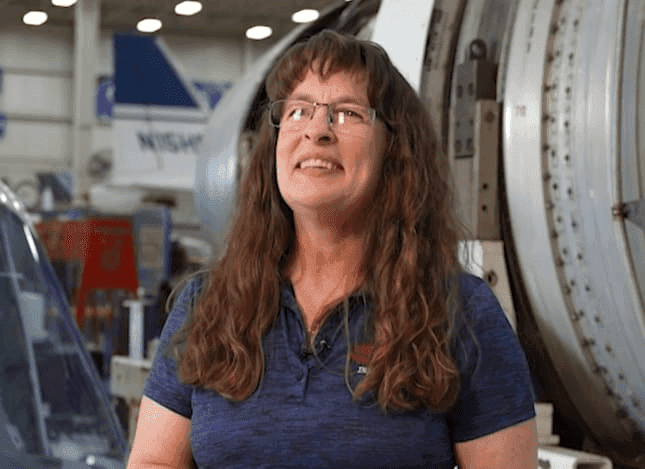Born for Aviation: Anita Harold’s Journey From Mechanic to Instructor
"Look at everyone who has done it before you. If they can do it, you can do it, too."
Anita Harold was practically born into the aviation field. Her father's profession as an aircraft mechanic sparked her interest in the industry.
Being raised with a passion for aviation, Anita learned to fly at a very young age. In fact, by the time she graduated high school she already had her private pilot’s license and instrument rating! A few years later she added a commercial pilot’s license and a flight instructor certificate to her resume.
“I went to school in Colorado where I got my AMP (Aviation Maintenance Professional certification). I’ve got a bachelor’s degree in aviation science and I’ll soon have a master’s degree in education, too,” she shares with joy.
Empowering the Next Generation With Her Unique Experiences
Needless to say, if anyone is qualified to teach aviation, it’s Anita. Her credentials are impressive and her background in the field provides a rich resource for her students, allowing them to learn from her career.
“I like to give them a really good idea as to what they might actually see based on my experience,” says Anita.
Her favorite part about teaching? Her students and the ability to pass along her expertise.
“We get to pass knowledge on, so they aren’t starting from ground zero,” she adds. “They actually have a place to build from.”
Before Anita was an instructor for the aviation technician programs, she ventured into the practical field as an AMP mechanic and then as an airframe inspector, which provided her with key insight into common career paths in the industry.
A significant part of her teaching focuses on the practical application of theoretical knowledge as she tells us.
“We talk about communication systems, navigation systems that are used in aviation,” Anita says. “We use the practical application of what they use in basic electricity to help decide wire size and how to route wires.”
Students learn all of this along with general classes that cover a whole range of subjects from aircraft familiarization, math and physics, weight and balance, and tools and safety. They even learn about the regulations as well as how to draw and identify hardware.
Anita strongly believes in the importance of continuous learning, especially in the age of technological advancement.
“The newer airplanes are more computerized so it’s very important that students maintain their knowledge on computers,” Anita shares. “Perhaps get further training to be able to troubleshoot these airplanes because they are more technologically advanced.”
Opportunities in Aviation
When talking about the career avenues in aviation, Anita says to aim high.
She emphasized the broad variety of opportunities available in the aviation industry, from working with major airlines like Delta or Spirit, to smaller general aviation airplanes.79 She also mentioned the potential of working overseas as contractors or even in related fields.
Anita's passion for the industry is evident in her teaching and interaction with her students. She enjoys the dynamism of the industry.
“My favorite part about aviation is that it’s not the same thing every day,” she shares. “You never know what you’re going to get from one day to the next.”
Anita Harold's career journey exemplifies the opportunities and rewards that can come from a long-term career in aviation, especially after earning an education. Her advice to aspiring students is to, “Keep going and get the license.” She encourages them to explore the school and industry, emphasizing the possibilities now and in the future.1

